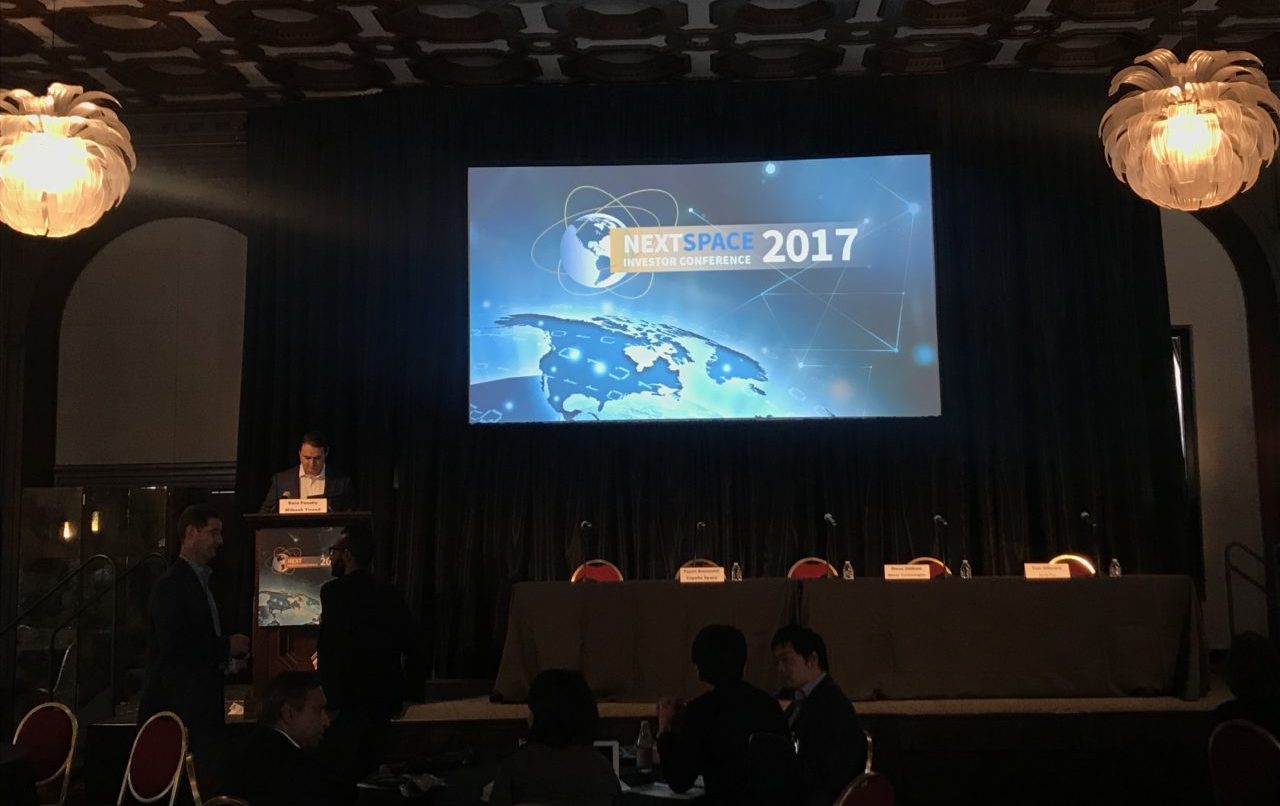Latest News

Photo: Via Satellite.
According to some financial experts, the space startup industry is in the midst of a bubble — but that may not necessarily be such a bad thing. During a Nov. 15 panel discussing equity financing at the 2017 NextSpace Investor Conference, a group of Venture Capitalists (VCs) noted that the influx of capital coming into the space market is helping support “a lot of talent and resources” driving healthy commercial growth.
The big question mark now, said Bessemer Venture Partners’ Tess Hatch, is whether these young companies can sustain their profitability in the long term. “The only real exit we’ve seen in space so far is when Google acquired Skybox. So the question is, what’s next for these companies?” Hatch said.
Although DFJ Growth partner Randy Glein warned that some capital coming into the space market “is not doing it in a particularly discerning way,” he said too that he expects to see more opportunities for exits over the next five years — particularly for companies specializing in data analytics and services. The biggest challenge for hardware-oriented companies, on the other hand, is that they’re more capital intensive, Glein said. “It’s hard to do those milestone-based financings,” Glein said. “There’s a lot of capital out there but you have to be able to show progress incrementally over time. [The capital] won’t all come at once.”
“Showing that you can generate meaningful value-inflecting milestones I think is very significant,” echoed Lux Capital partner Shahin Farshchi. Farshchi highlighted companies such as Kymeta and Relativity Space as interesting “long-tail businesses” with good potential for revenue-generating opportunities far into the future. Although still young and lightly staffed, Relativity Space has already begun to test its self-built 3D printers with the goal of reducing rocket manufacturing costs. Kymeta has also taken the first steps to prove out its business case with cross-country treks and the introduction of its Kalo connectivity service.
According to Farshchi, the challenge with space-related companies is that the market can be hard to predict. Still, it is entrepreneurs’ responsibility to present a realistic business plan to potential investors ensuring they will receive continued financial support, he said. “The onus is on the entrepreneur to make the case that the market is big enough [and] the economics are attractive enough to attract investors,” Farshschi said. “When you’re a hardware company, what many entrepreneurs tend to ignore is the return on capital as it relates to the hard capital investment.”
Valery Komissarova, a principal investor at Grishin Robotics, said that inexperienced entrepreneurs frequently fall into the trap of seeing space as cool, and therefore inevitably profitable. “Very often still entrepreneurs tend to think that because what they’re doing is so interesting and exciting it somehow absolves them of the tough questions they have to ask themselves about the business,” she said. “You have to factor in the unique properties of your business when it comes to space, but at the same time you have to … forget about the fact that it’s space. Does it still look like a good business?”
“Take space out of the equation,” added Farshschi.
Farshschi advised new entrepreneurs to pursue individual investors, rather than entire firms, who could potentially be useful strategic partners in the very early stages. “If you’re a young company, then target either an angel or an individual at a fund who really believes in you and your mission,” he said. “Go after the more institutional larger funds for your Series A when you have a sense as to what the profile of the business is, what the metrics are you’re trying to achieve and how this could be a valuable company.”
Glein emphasized that VCs will likely play an important role in the evolution of any company they invest in, and advised entrepreneurs to look for investors who can function as “true partners” and not just a source of capital. He also recommended targeting individuals who have relevant expertise, such as aerospace experts, either from their own startup experience or their involvement with other companies at similar early stages.
Komissarova assured that investors are often open to having discussions about a business long before committing to any official partnerships. It’s best to spread a wide net, and to talk to other entrepreneurs who have worked with a potential investor to learn about how they operate, she said. “Start to develop these relationships earlier,” Komissarova said. “I personally am always super open to these conversations.”
The NextSpace Investor Conference is a joint educational event presented by Raymond James, Milbank and Via Satellite.
Get the latest Via Satellite news!
Subscribe Now